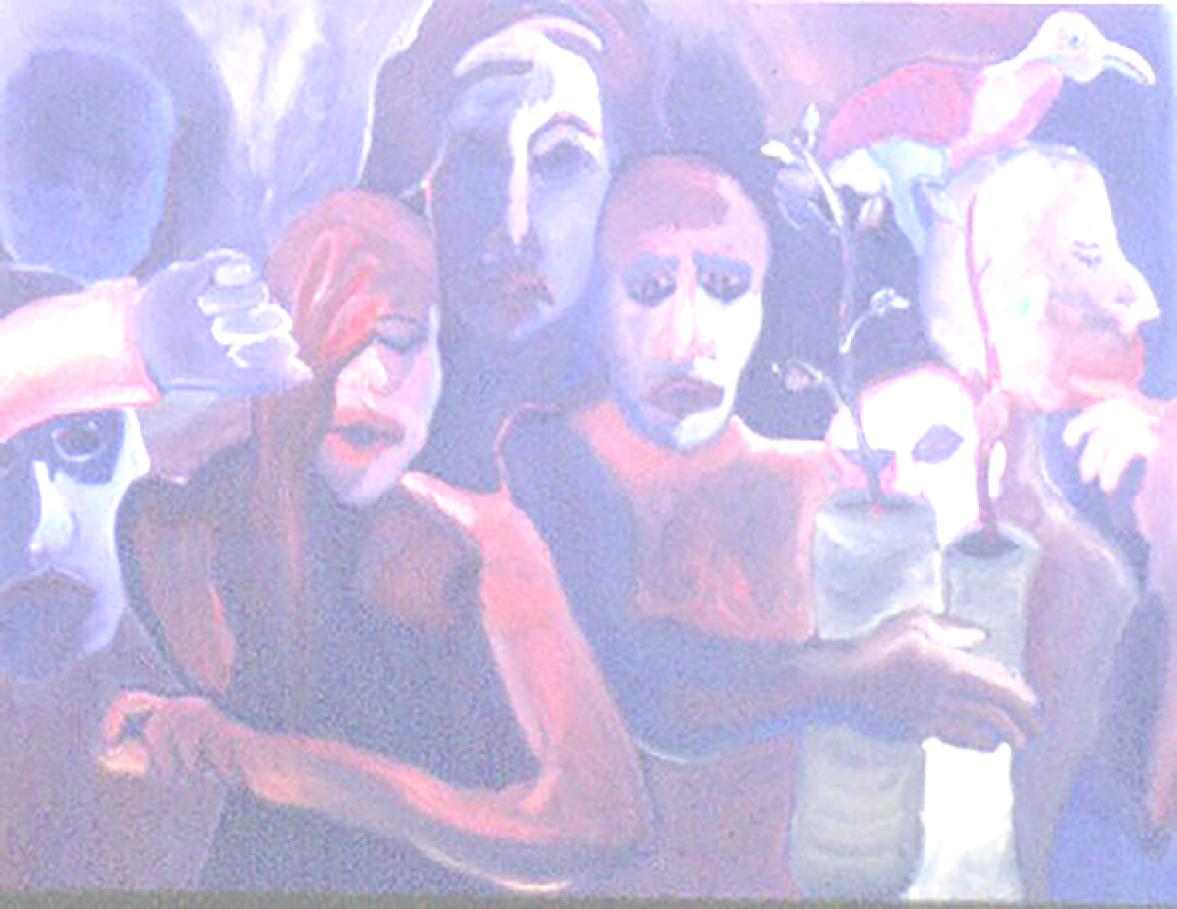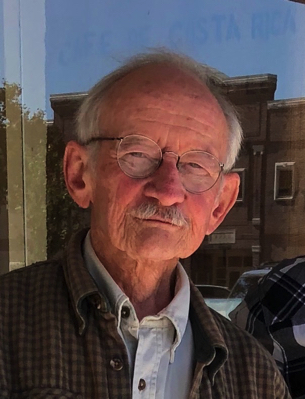I-70 Review
Writing and Art from the Middle and Beyond

Featured Poet
Ted Kooser

Ted Kooser's most recent collection of poetry is Red Stilts, from Copper Canyon Press. He's also the author of four childrens' picture books, published by Candlewick Press, the most recent being Mr Posey's New Glasses, 2019.He recently retired from teaching poetry writing at the University of Nebraska and from his founding editorship of American Life in Poetry, a weekly column reaching 4.6 million readers. He is a former U. S. Poet Laureate and Pulitzer Prize winner who lives in rural Nebraska.
An Afternoon Before Winter
Under a great silver maple,
crowding a sizeable share of the sky
with its ball of bare branches—
just a leaf or two left here and there
feebly waving—a big circle of lawn
is covered with that pale lampshade
yellow of maples in early November,
and a large man in a barn jacket
and one of those farm-store black caps
with the earflaps tied over the top,
riding a red mower not a lot bigger
than he, shiny as if it were new
this past spring, has, as we're passing,
buzzed into the leaves, throwing
a big plume of yellow confetti
off to the side, making a very green
path, as if freshly painted, his face
flat, expressionless, both hands firm
on the steering wheel, not betraying
his delight, though it's easy to see,
even while just driving past.
Parade
By late afternoon, this one brief block
of the crowded parade route has settled back
into an empty street of silent, graying houses
shuffling through time, the cracked pavement
no longer crossed by little children dashing
over and back, but by the lengthening shadows
of trees, and a woman somewhere in her
seventies, trailing behind in a headscarf
patterned with flowers, is walking her grass
pinching up empty Tootsie Pop wrappers
in aqua-green dishwashing gloves.
In Cemetery Winter
The backhoe's rattle stops, and a silence
that must have all along been seeping out
of the fresh grave's walls but which, before,
was being scooped out and ladled over
the snow, is now overflowing the hole
and flooding the graveyard with quiet,
just as a man in insulated coveralls
shoves open the cab, making a squeak
you could hear for a mile, turns his back
to the quiet, gets hold of the door frame
as a person might do when hanging
a mirror, then slowly steps backward, out
and down the iron steps into the stillness
of cemetery winter—no stillness like this,
anywhere, ever. Now he reaches back in
for a shovel, then hands it down into
the grave as if a helper were waiting,
then lowers himself onto the edge, one
heavy bucket of man at a time, to sit
slowly stirring his legs up to the knees
in the shadows, everything everywhere
paused till he pushes himself off and
drops with a thud on top of a world
even deeper. How he'll ever be able
to pull himself out is anyone's guess,
but for now he's down out of our sight
shoveling, possibly squaring the corners,
smoothing the black walls, with a trace
of snow sifting down through the trees
and beginning to whiten his shoulders.
Sara
S. V. 1948-1991
I suppose you and I exchanged letters
for fifteen or more years before meeting
face to face, at your walk-up apartment
in the Castro. You'd been picking up
for my visit and I passed two big boxes
of wine bottles at the foot of the stairs.
A little breathless with anticipation,
a mint tucked in your cheek, you were
dressed up to go out for dinner, blond
hair rolled in curls, silk blouse and slacks,
but with faux-leather bedroom slippers
which you forgot about till we got down
the steps to the street and you saw them,
then very quickly recovered, laughing,
saying that all alcoholics much preferred
to wear slip-ons. And I laughed along,
and we walked a few blocks to dinner,
you merry and a little nervously chatty.
I could see, as a girl, you'd been pretty,
conventionally pretty, but that night
you were beautiful, showing your age,
your lips crinkled, lines by your eyes,
full of plans for your stories, two novels
already behind you. Though I didn't
mention it to you, just lately I'd noticed
that the worlds in your fiction, once wide,
broad, and crowded with people, seemed
to be shrinking, characters often alone,
confined to a room or two. But what I
remember most vividly, dear lost Sara,
all these many years later, are those telltale,
sad, faux-leather dollar-store slippers.